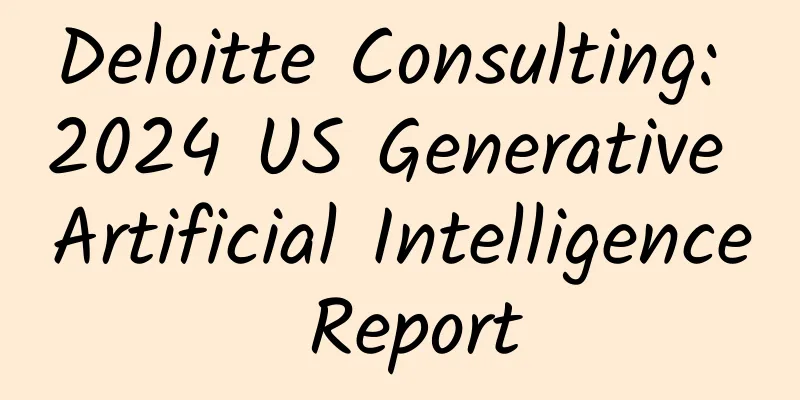Deloitte Consulting: 2024 US Generative Artificial Intelligence Report

|
Deloitte has released its 'Generative AI in the U.S. 2024 Report', revealing insights from a country that claims to be at the forefront of AI adoption. Enthusiasm for generative AI remains high, with the next three years expected to see transformative impact. 62% of respondents said excitement was the top emotion regarding generative AI, but there was also uncertainty (30%). 79% of respondents expect generative AI to drive significant change in their organizations and industries within the next three years. Many leaders are confident in their organization’s generative AI expertise. 44% of respondents believe their organization currently has a high (35%) or very high (9%) level of expertise in generative AI. Organizations with high expertise in generative AI tend to feel more positive about it, but also more stressed and threatened. Relative to other respondents, leaders who rated their organization’s overall generative AI expertise as “very high” tended to feel more positive about the technology; they also felt more pressure and viewed it as a greater threat to their business and operating models. Current generative AI efforts are still more focused on efficiency, productivity, and cost reduction than on innovation and growth. Most organizations surveyed are currently targeting tactical benefits, such as increased efficiency/productivity (56%) and/or reduced costs (35%). Additionally, 91% of respondents said they expect generative AI to increase their organization’s productivity, with 27% expecting productivity to increase significantly. Most organizations rely primarily on off-the-shelf AI solutions. Consistent with their current emphasis on the tactical benefits of generative AI, the vast majority of respondents currently rely on off-the-shelf solutions. Talent, governance, and risk are key areas where productive AI readiness is lacking. In the initial quarterly survey, 41% of leaders said their organizations were only somewhat or not at all prepared to address talent issues related to generative AI adoption; 22% felt their organizations were very well prepared. Leaders see major societal impacts on the horizon. 52% of respondents expect that widespread use of generative AI will concentrate global economic power; 30% expect it to distribute global power more evenly. Leaders are seeking more global regulation and collaboration. In disrupting traditional business norms, the unique risks associated with generative AI have prompted many business leaders to call for greater government regulation and increased global cooperation around AI technology. |
>>: Samsung Galaxy S6 Close-up: Metal body and curved screen
Recommend
Sacon’s dilemma: Rapid decline in performance means there are not many cards left to play
Sacon, once ranked first in the kitchen appliance ...
Inventory | How did the “World Cup Game” trigger user growth?
This article is about the World Cup held every fo...
Why do we put so much effort into shooting short videos, but people who watch them don’t feel anything?
People who make short videos are always eager to ...
"Father of the Hydrogen Bomb" Ulam: My Friend John von Neumann | Commemorating the 120th Anniversary of John von Neumann's Birth (Part 1)
December 28, 2023 is the 120th birthday of John v...
Channel operation: How can newcomers do a good job in app store promotion?
1 What is channel operation promotion The term &q...
For an Internet finance platform, is a 30% increase in the number of users each month considered "growth"?
What is growth? Any growth that is not aimed at i...
Marketing promotion: How to do content marketing well?
Speaking of content marketing , everyone must be ...
Meizu's layoffs spark a major reshuffle? LeEco, Lenovo, and TCL's mobile phone businesses are also in trouble
There is a good news or a bad news. Which one do ...
Working three or four hours a day in the game brick-moving project can earn you more than 10,000 yuan a month!
If you ask which industry is the most profitable,...
An article to help you understand big data mining technology!
If big data is to generate value, its processing ...
CDC reminds you! It’s the peak season for food poisoning, be careful when eating these 3 types of food!
June weather is getting hotter The Dragon Boat Fe...
Operational tips: How to use new media to promote products
Before explaining new media operations, let’s fir...
Hunan Satellite TV suffered a setback. Will Mango TV, which has been broadcasting exclusively for two years, be the lifeline of Hunan Radio and Television?
"Hunan Satellite TV's programs don't...
Only Yueme has no future: OTT market needs to improve cooperation capabilities to survive
Just after the 2015 Spring Festival, rumors began...
Why can Mimi Meng be a clickbait headline reader?
As an operator of a public account , I have a lov...









